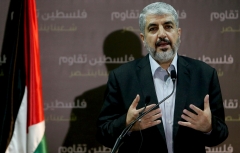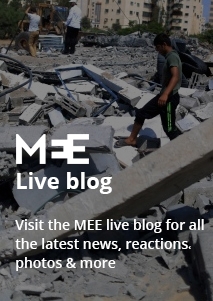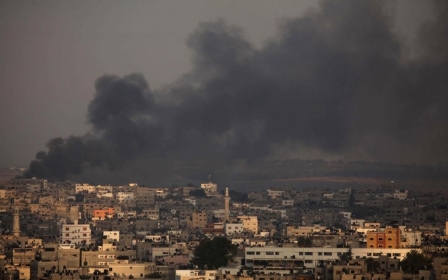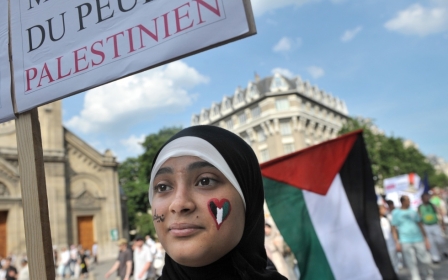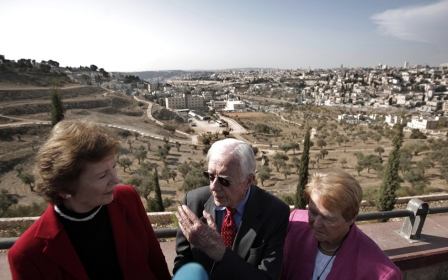Palestinian leaders, civil society, demand end to blockade as death toll passes 745
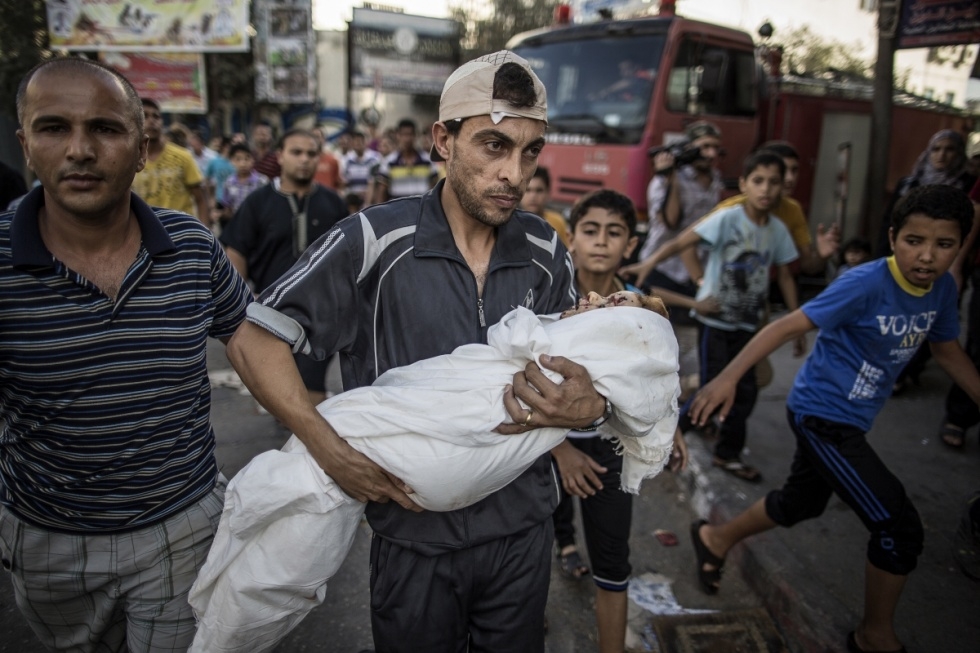
The leader of Hamas has declared they will not accept a ceasefire in Gaza until there is an agreement to end Israel’s punishing eight-year long blockade on the Palestinian coastal enclave.
“We will not accept any initiative that does not lift the blockade on our people and that does not respect their sacrifices,” Khaled Meshaal told reporters at a news conference in Qatar on Wednesday evening. “The years of blockade have killed more of our people than have the wars,” he added.
Meshaal said he does not “wish for war” but reiterated that Hamas “will not yield” unless their conditions for a ceasefire are met.
His demand for an end to the blockade has been supported by the Palestinian Authority, as well as almost 100 prominent Palestinian academics, public figures and activists who published an open letter in the online journal Electronic Intifada.
“We call for a ceasefire only when negotiated conditions result in…freedom of movement of Palestinians in and out of the Gaza Strip,” the letter said, which also stated Gaza must be allowed “unlimited import and export” of goods and “unrestricted use of the Gaza seaport”.
“Each of these expectations is taken for granted by most countries, and it is time for the Palestinians of Gaza to be accorded the human rights they deserve,” it continued.
In Doha Meshaal did not rule out a humanitarian truce, saying: “we need the calm for a few hours to evacuate the wounded and assist in relief”.
The death toll in Gaza continues to rise, as Israel’s near three week offensive shows no sign of abating. Gaza's Health Ministry says the death toll now stands at more than 745, with over 4,250 injured, while the UN says 120,000 Palestinians have been displaced.
The Gaza-based Palestinian Centre for Human Rights says 81.5 percent of those killed were civilians and 24 percent of them children.
On Thursday morning Maan News reported that Hamas claimed to have killed eight Israeli soldiers in the al-Tuffah neighborhood, north-east Gaza. If true, this would mean 38 combat troops have been killed since Israel's ground operation began on 17 July.
International efforts to find a ceasefire agreement are being intensfied as the fighting continues to rage.
US Secretary of State John Kerry has returned to Cairo after holding talks with UN chief Ban Ki Moon in Jerusalem where the two men agreed to pool their efforts in finding a ceasefire.
“We are now joining our forces in strength to make a ceasefire as soon as possible,” Ban said as he met Kerry for the second time this week, following initial talks in Cairo on Monday.
Kerry also travelled to the West Bank city of Ramallah where he said “some progress” had been made in the ceasefire talks, before moving onto Tel Aviv to meet Israeli Prime Minister Benjamin Netanyahu.
Shortly after Kerry left Tel Aviv the American Federal Aviation Administration (FAA) lifted a flight ban to Israel, which had been imposed on Tuesday after a rocket fired from Gaza landed one mile from the Israeli capital’s Ben Gurion airport.
"The FAA has lifted its restrictions on US airline flights into and out of Israel's Ben Gurion Airport," the US national aviation agency said early on Thursday.
It warned, however, that the situation remains “very fluid” amid the ongoing fighting. There is no indication, as yet, that European airlines will resume flights to Israel.
Hamas had described the flight ban as a “great victory for the resistance”, and in Doha their leader Meshaal said: “what happened at Ben Gurion [airport] was a blockade in the face of a blockade.”
The siege of Gaza started in 2006 when Israel imposed severe restrictions on the movement of people and goods following the kidnapping of Israeli soldier Gilad Shalit by Hamas fighters. It has been described as illegal by UNRWA, who have led international calls for Israel to lift what has proved a punishing blockade.
On Wednesday 12 Israeli human rights organisations wrote to the country’s defence minister, Moshe Ya’alon, criticising the blockade and calling on him to meet the humanitarian needs of Gaza’s people.
The signatories, which included Amnesty International Israel and B’Tselem, called on the Israeli government to “remove all restrictions on movement to and from Gaza beyond those necessary for addressing Israel’s legitimate security concerns and in particular allow entrance of spare parts, fuel and construction materials to facilitate the repair and maintenance of Gaza’s critical infrastructure.”
While the military offensive in Gaza continues, the groups called on Israel to “refrain from harming civilian infrastructure” and “targeting or harming technicians who set out to repair damaged infrastructure”.
Criticism of Israel’s attacks on Gaza has been rising in recent days and on Wednesday the UN Human Rights Council voted to approve an inquiry into allegations of war crimes having been committed with 29 countries voting yes, 17 countries abstaining from the vote, and the US being the sole member state who voted against the proposal.
Israeli Prime Minister Benjamin Netanyahu reacted with scorn to the council’s decision with a statement from his office saying it was “a travesty and should be rejected by decent people everywhere.”
The decision to establish an inquiry mirrors the council’s response to Israel’s Operation Cast Lead in 2008-9, which killed more than 1,400 Palestinians in Gaza. On that occasion, the Goldstone Commission was set up and its final report was damning of Israeli military attacks.
New MEE newsletter: Jerusalem Dispatch
Sign up to get the latest insights and analysis on Israel-Palestine, alongside Turkey Unpacked and other MEE newsletters
Middle East Eye delivers independent and unrivalled coverage and analysis of the Middle East, North Africa and beyond. To learn more about republishing this content and the associated fees, please fill out this form. More about MEE can be found here.


